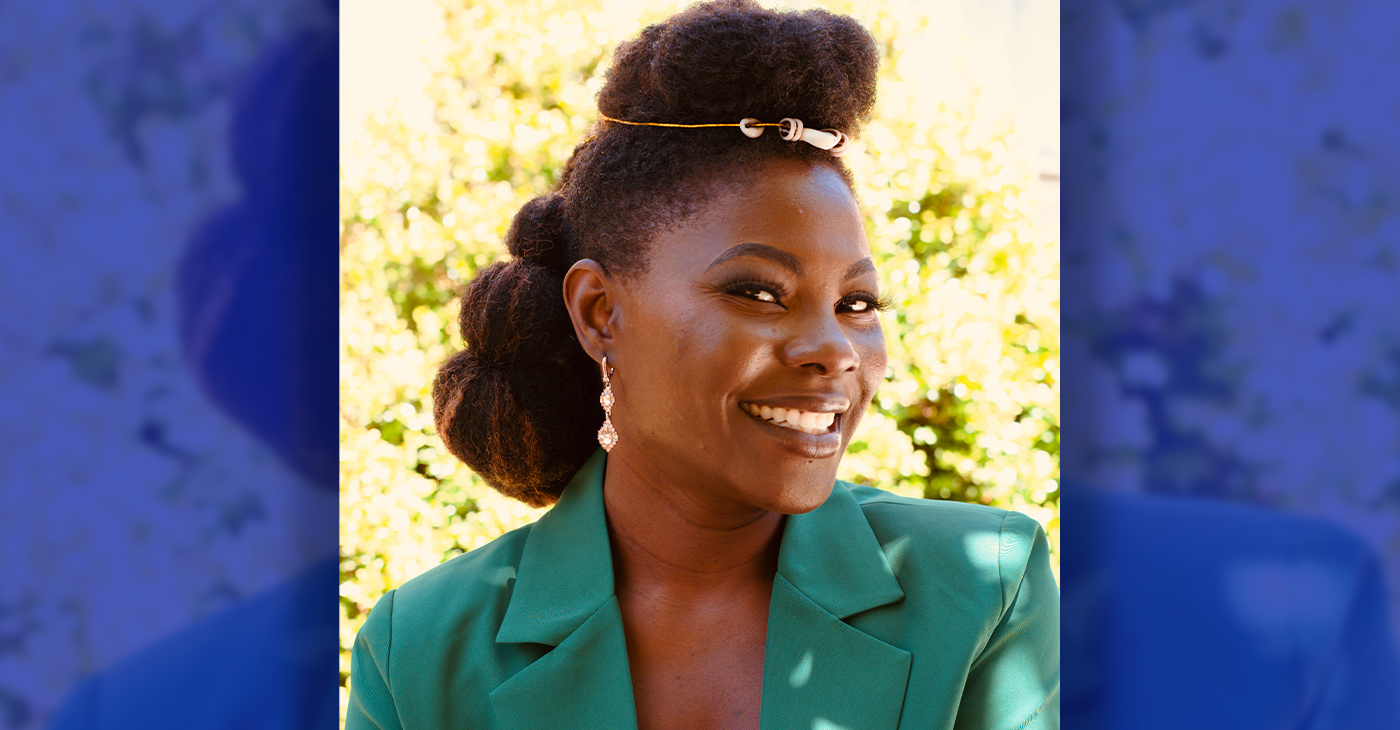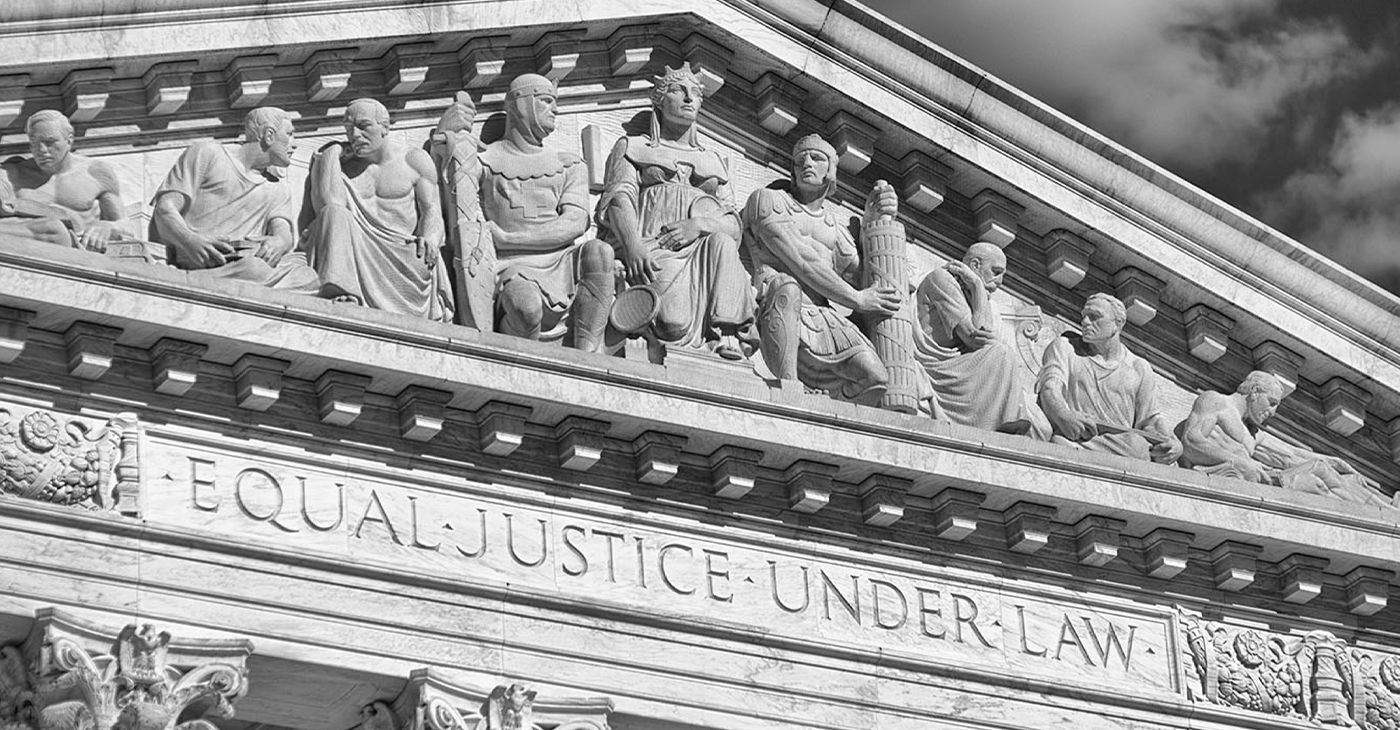Community
Addressing Clinician Burnout Through Communal Healing
The COVID-19 pandemic put an extra strain on Black, Indigenous and other people of color (BIPOC) healthcare workers. Over half of all clinicians grapple with burnout symptoms, i.e. fatigue, detachment, depression, mental health decline, and medical errors. The American Medical Association noted that Black physicians (37%) and physicians who identify as two or more races (45%) report the highest rates of burnout onset or increase due to COVID-19.

By Dr. Uzo Nwankpa, DNP, MSN, RN
The COVID-19 pandemic put an extra strain on Black, Indigenous and other people of color (BIPOC) healthcare workers.
Over half of all clinicians grapple with burnout symptoms, i.e. fatigue, detachment, depression, mental health decline, and medical errors.
The American Medical Association noted that Black physicians (37%) and physicians who identify as two or more races (45%) report the highest rates of burnout onset or increase due to COVID-19.
How do we prioritize the well-being of healthcare workers who put their lives on the line for our communities?
As a community health nurse and nursing instructor, I have witnessed burnout symptoms steal the light away from current and future healthcare workers.
I started my nursing journey in an ICU in 2008, facing constant life-or-death scenarios. Surrounded by fatigued, overworked, and undervalued colleagues, I experienced the brokenness of the culture of our medical system. Our healthcare workers need attention.
My journey began 25 years ago, as a young, newly arrived and under-resourced Black immigrant. I faced immense challenges that put me at risk. The relentless dance with assimilation, altering everything from my speech to my mannerisms, was exhausting and lead to years of depression and anxiety.
Family, friends, and my connection to my cultural practices were critical to my healing, empowering me to overcome many obstacles and enabling me to earn my first college degree. Firsthand, I have learned that the societal risk factors we face can be mitigated by protective factors.
One protective factor was reconnecting with my heritage, which provided me with a sense of empowerment. Memories of my ancestral homeland would resurface to remind me of the joys of meaningful interpersonal connection, intentional music to ward off ailments, nourishing meals to rejuvenate the senses, and laughter and tears flowing freely.
Deprivation of these cultural experiences in our modern lives may disrupt our spiritual well-being.
Utilizing African-indigenous cultural wisdom can offer relief among African descendants, Afro-diasporic seeds, and Black folk. In West Africa’s Igbo language, Agwu embodies the inspirer of talent, directing our focus toward artistic pursuits like music, dance, and storytelling.
Tuning into the rhythmic language, the beats of the ogene (metal gong), and the udu (clay pot) charges me up, nurses my cultural longing, and informed the development of the RICHER model-a five-step process to create community healing spaces.
Communal healing sessions utilize this model to support BIPOC healthcare workers in being seen, heard, and affirmed, and incorporates indigenous African healing practices like music, dance, mindfulness, storytelling, and expressivity. These communal sessions yield transformative results, as participants emerge feeling connected, lighter, and inspired to re-engage their restorative work.
Such self-care and strong interpersonal relationships are vital, and the onus shouldn’t fall on individuals alone. Organizations that employ healthcare workers must proactively prioritize well-being and burnout prevention initiatives. At the community level, policies and funding that support mental and emotional well-being are necessary to address this national priority.
Amid the pervasive issue of burnout, communal healing stands out as a beacon of hope and source of rejuvenation. By nurturing caregivers, revitalizing minds, and reigniting spirits, we have the opportunity to reshape the future for our clinicians and communities. Together, let’s revitalize our healthcare environment and elevate healthcare workers to optimal well-being in mind, body, and spirit.
Author Bio
Dr. Uzo Nwankpa is the founder and CEO of Wellness Promoters LLC (ww.wellnesspromoters.net), which partners with organizations to address clinician burnout. Dr. Uzo’s expertise lies in community healing sessions, especially for historically-marginalized community and healthcare workers.
Dr. Uzo is a collaborator of the Bay Area Chapter Association of Black Psychologists (BACABPsi), a healing resource committed to providing the Post Newspaper readership with monthly discussions about critical issues in Black Mental Health. Readers are welcome to contact us at bayareaabpsi@gmail.com and join us at our monthly chapter meetings every third Saturday via Zoom.
Activism
Oakland Post: Week of December 18 – 24, 2024
The printed Weekly Edition of the Oakland Post: Week of December 18 – 24, 2024

To enlarge your view of this issue, use the slider, magnifying glass icon or full page icon in the lower right corner of the browser window. ![]()
Activism
City of Oakland Celebrates Reopening of Main Library
“Libraries are such critical facilities for all Oaklanders, whether it’s children coming to story-time, adults reading the newspapers or borrowing the latest novels, and people engaging with a range of services and programs that the library hosts,” said Council President and District 2 Councilmember Nikki Fortunato Bas. “Such library services and programs are only possible when the facility’s electricity, heating, roof, and lighting are fixed and running efficiently. I’m proud to join this re-opening of our Main Public Library.”

The branch had been closed since May for critical infrastructure upgrades
Special to the Post
The City of Oakland leadership and community partners gathered to celebrate the reopening of the Main Library after completion of critical infrastructure upgrades to enhance the library’s facilities and provide a better experience for patrons.
Renovations include new roof installation, skylight repair, critical electrical system upgrades, new boiler control system installation, auditorium heating and cooling system installation, and improvements to lighting, flooring and ceilings throughout the building.
“This is truly something to celebrate, the reopening of our wonderful Main Library! I congratulate the staff and our partners for this important project to make the Main Library a more comfortable place for everyone for years to come, said Oakland Mayor Sheng Thao. “Thank you to Oakland voters and the California State Library for making these crucial improvements possible.”
“Libraries are such critical facilities for all Oaklanders, whether it’s children coming to story-time, adults reading the newspapers or borrowing the latest novels, and people engaging with a range of services and programs that the library hosts,” said Council President and District 2 Councilmember Nikki Fortunato Bas. “Such library services and programs are only possible when the facility’s electricity, heating, roof, and lighting are fixed and running efficiently. I’m proud to join this re-opening of our Main Public Library.”
“Public libraries are a wonderful resource for our residents, offering a safe space for learning and being,” said District 3 Councilmember Carroll Fife. “It is critical to improve and modernize our libraries so more members of our community can utilize and enjoy them. I’m excited that the necessary renovations to the Main Library have been completed successfully and thank everyone involved, particularly the City team, who helped secured the necessary grant funds for this work.”
“I am proud of the City staff and project partners who kept this important project on schedule and under budget,” said Assistant City Administrator G. Harold Duffey. “The library is an incredibly important resource for our community members, and this project is an investment into the library’s future.”
“December 2nd was a momentous occasion for Oakland Public Library as we proudly reopened the doors of the Main Library following extensive infrastructure repairs,” said Director of Library Services Jamie Turbak. “Closing the Main Library for six months was no easy decision, as it serves as the central hub for our library system and is truly the heart of Oakland. Yet, this renovation was essential, representing more than just physical upgrades—it reflects our ongoing commitment to creating a safe, welcoming space for everyone.”
The City Administrator Jestin Johnson also attended the press conference and signalled his support for the completion of the record-setting completion of the renovations. Gay Plair Cobb, a newly appointed Library Commissioner said the Library represents the soul and brains of our community.
The Oakland Public Library secured funding for these crititcal repairs through a variety of sources. The California State Library’s Building Forward Library Facilities Improvement Program awarded the Main Branch $4.2 million. To comply with the grant terms, the City of Oakland provided matching funds through Measures KK, as approved by the Oakland City Council in October 2023.
The Main Library will host an Open House to celebrate the reopening on February 22, 2025, 10 a.m. – 5:00 p.m.
About the Oakland Public Library
The Oakland Public Library is a part of the City of Oakland in California and has been in existence since 1878. Locations include 16 neighborhood branches, a Main Library, a Second Start Adult Literacy Program, the Oakland Tool Lending Library, and the African American Museum and Library at Oakland (AAMLO). The Oakland Public Library empowers all people to explore, connect, and grow. Oaklandlibrary.org
Activism
Biden’s Legacy Secured with Record-Setting Black Judicial Appointments
His record surpasses previous efforts by his predecessors. President Jimmy Carter appointed 37 Black judges, including seven Black women. In stark contrast, Donald Trump’s first term resulted in only two Black women appointed out of 234 lifetime judicial nominations. The White House said Biden’s efforts show a broader commitment to racial equity and justice.

By Stacy M. Brown
WI Senior Writer
President Joe Biden’s commitment to diversifying the federal judiciary has culminated in a historic achievement: appointing 40 Black women to lifetime judgeships, the most of any president in U.S. history.
Biden has appointed 62 Black judges, cementing his presidency as one focused on promoting equity and representation on the federal bench.
His record surpasses previous efforts by his predecessors. President Jimmy Carter appointed 37 Black judges, including seven Black women. In stark contrast, Donald Trump’s first term resulted in only two Black women appointed out of 234 lifetime judicial nominations.
The White House said Biden’s efforts show a broader commitment to racial equity and justice.
Meanwhile, Trump has vowed to dismantle key civil rights protections, including the Justice Department’s Civil Rights Division.
“Having the Black woman’s experience on the federal bench is extremely important because there is a different kind of voice that can come from the Black female from the bench,” Delores Jones-Brown, professor emeritus at John Jay College of Criminal Justice, told reporters.
Lena Zwarensteyn of the Leadership Conference on Civil and Human Rights told reporters that these district court judges are often the first and sometimes the final arbiters in cases affecting healthcare access, education equity, fair hiring practices, and voting rights.
“Those decisions are often the very final decisions because very few cases actually get heard by the U.S. Supreme Court,” Zwarensteyn explained.
Biden’s nomination of Justice Ketanji Brown Jackson to the Supreme Court further reflects his commitment to judicial diversity. Jackson became the first Black woman to serve on the nation’s highest court.
Patrick McNeil, spokesperson for the Leadership Conference, pointed out that over half of Biden’s Black female judicial appointees have backgrounds as civil rights attorneys and public defenders, experience advocates consider essential for a balanced judiciary.
Meanwhile, Congress remains divided over the expansion of federal judgeships. Legislation to add 66 new judgeships—approved unanimously by the Senate in August—stalled in the GOP-controlled House until after the election. House Republicans proposed distributing the new judgeships over the next decade, giving three administrations a say in appointments. President Biden, however, signaled he would veto the bill if it reached his desk.
Rep. Jerry Nadler, D-N.Y., argued the delay was a strategic move to benefit Trump’s potential return to office. “Donald Trump has made clear that he intends to expand the power of the presidency and giving him 25 new judges to appoint gives him one more tool at his disposal,” Nadler said.
-

 Activism4 weeks ago
Activism4 weeks agoOakland Post: Week of November 20 – 26, 2024
-

 Activism4 weeks ago
Activism4 weeks agoAn Inside Look into How San Francisco Analyzes Homeless Encampments
-

 California Black Media4 weeks ago
California Black Media4 weeks agoCalifornia to Offer $43.7 Million in Federal Grants to Combat Hate Crimes
-

 Black History4 weeks ago
Black History4 weeks agoEmeline King: A Trailblazer in the Automotive Industry
-

 California Black Media4 weeks ago
California Black Media4 weeks agoCalifornia Department of Aging Offers Free Resources for Family Caregivers in November
-

 California Black Media4 weeks ago
California Black Media4 weeks agoGov. Newsom Goes to Washington to Advocate for California Priorities
-

 Activism4 weeks ago
Activism4 weeks agoOCCUR Hosts “Faith Forward” Conference in Oakland
-

 Activism3 weeks ago
Activism3 weeks agoOakland Post: Week of November 27 – December 3, 2024





















































